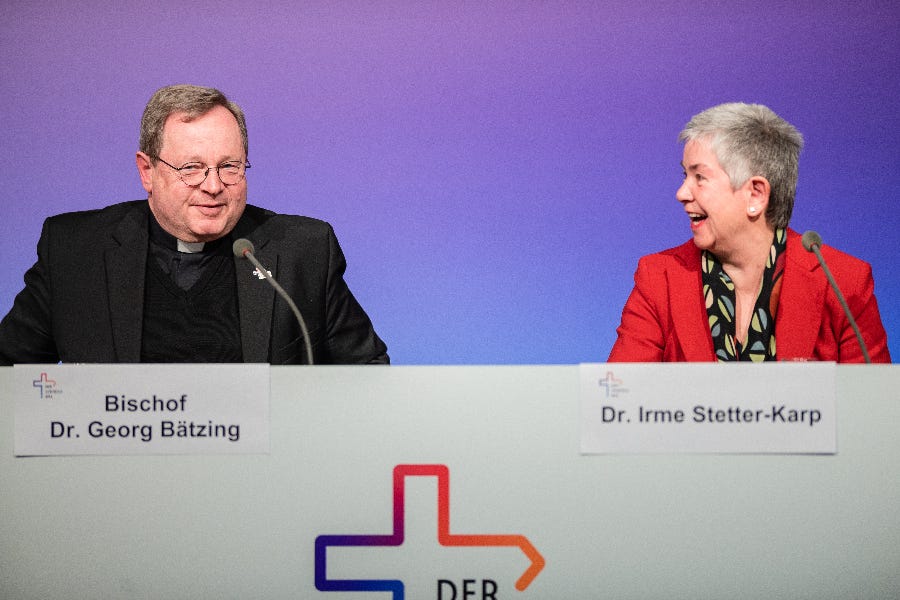Heads of Germany’s synodal way seek papal talks on resolutions
The initiative’s co-presidents said they would welcome a face-to-face meeting with Pope Francis.
The leaders of Germany’s “synodal way” asked in June for face-to-face talks with Pope Francis, in a letter setting out the initiative’s demands for sweeping changes to Church teaching and practice.

